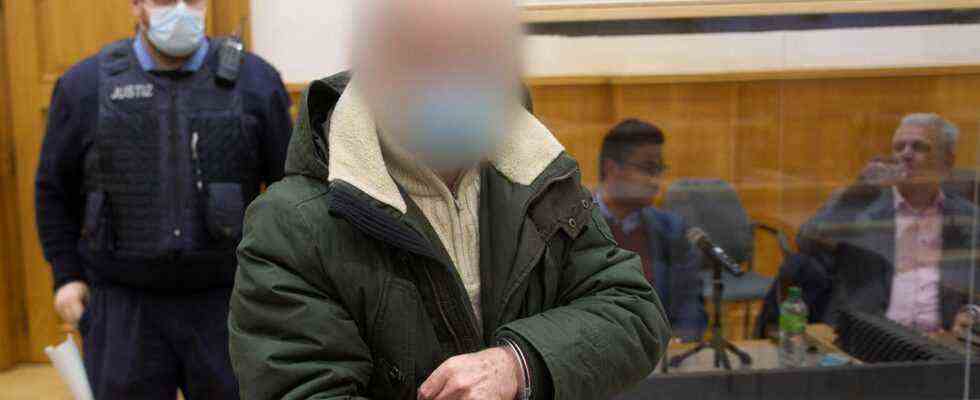Judgment in Koblenz
Life imprisonment in the world’s first trial for Syrian state torture
Anwar R., accused of state torture in Syria, is taken in handcuffs into the courtroom of the Higher Regional Court (archive photo)
© Thomas Frey / DPA
In the world’s first criminal trial for state torture in Syria, the Higher Regional Court in Koblenz sentenced the defendant Anwar R. to life imprisonment for crimes against humanity.
According to the Federal Prosecutor’s Office, the first trial of state torture in Syria in the world, the Koblenz Higher Regional Court (OLG) sentenced the accused to life imprisonment on Thursday. The judges found the 58-year-old Anwar R. guilty of crimes against humanity, 27 murders, torture and other offenses. According to the indictment, the accused was a former employee of the secret service of the Syrian ruler Bashar al-Assad and is said to have run a prison.
In the Al-Khatib detention center in the Syrian capital Damascus, between April 2011 and September 2012, at least 4,000 detainees were allegedly tortured with beatings, kicks and electric shocks under the authority of the defendant. Many died in the process. The verdict largely corresponded to the demands of the Federal Prosecutor’s Office, which had represented the prosecution in the trial, which was followed with attention around the world. The defense demanded acquittal.
Victims who fled from Syria recognized their tormentor
According to the Federal Prosecutor’s Office, R., as military commander, had assigned the interrogators and prison guards to work in the notorious prison and had determined their work processes. He also knew about the extent of the torture. The abuse was used to force confessions and to obtain information, the agency emphasized.
In the trial, which began in April 2020, a second man was also charged as a subordinate in the torture. Almost a year ago in February 2021, the court sentenced him to four and a half years in prison in a separate trial for aiding and abetting crimes against humanity. The verdict is not yet legally binding.
The case started because former victims who fled to Germany recognized their alleged tormentors. These were arrested in Zweibrücken in Rhineland-Palatinate and in Berlin. The fact that the process takes place in Germany is due to the so-called world law principle in international criminal law. According to this, acts may also be negotiated that have no direct connection to Germany.

